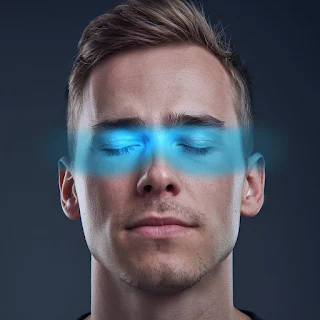Blue light hair damage, Digital hair care
Introduction: The Modern Digital DilemmaAs we spend more time on our devices—whether it's smartphones, tablets, or computers—blue light exposure has become an everyday part of life. While much attention has been given to the effects of blue light on the skin and eyes, little has been said about how it impacts our hair health. In this digital age, it's time to explore how blue light may affect your hair and what you can do to protect it.
https://121897.shop/2a530f6bf8b4d71a6a8e/39c42fa08a/?placementName=defaultWhat is Blue Light?
Blue light is a type of high-energy visible (HEV) light that is emitted by digital screens, LED lighting, and even the sun. While natural exposure to blue light has its benefits, such as regulating the body’s circadian rhythm, prolonged exposure from screens can lead to various health concerns. Research on the effects of blue light on hair is still emerging, but early findings suggest that extended exposure could influence scalp health, hair growth, and overall hair vitality.
How Does Blue Light Affect Hair Health?
While the skin is the primary barrier between the body and environmental stressors, the scalp and hair are also susceptible to damage caused by blue light. Here are some ways blue light may impact your hair:
Oxidative Stress and Hair Follicles:
Blue light can induce oxidative stress by generating free radicals. These free radicals may damage hair follicles, leading to weakened hair strands and potential hair loss. Prolonged oxidative stress can disrupt the hair growth cycle, preventing the regeneration of healthy hair follicles.
Scalp Health:
The scalp is an extension of the skin, and excessive blue light exposure can dry out the scalp, causing inflammation, itchiness, and dandruff. A healthy scalp is essential for optimal hair growth, and when the scalp’s natural barrier is compromised, hair quality suffers.
Hair Aging:
Just as blue light accelerates skin aging, it may also contribute to premature hair aging. Signs include loss of shine, thinning, and brittleness. This occurs because blue light disrupts the natural repair mechanisms of both the scalp and hair, leading to aging at a cellular level.
Blue Light and Hair Care: What Can You Do?
Now that we know the potential impact of blue light on hair health, it’s essential to take proactive steps to protect your hair from excessive screen exposure. Here are some tips:
Limit Screen Time:
Reduce the amount of time spent in front of digital screens, especially at night when blue light exposure is more harmful. Consider using blue light blocking glasses or screen filters to reduce the intensity of blue light that reaches your scalp and hair.
Use Antioxidant-Rich Hair Products:
Incorporating hair care products that are rich in antioxidants like vitamin E, green tea extract, and rosemary oil can help neutralize free radicals caused by blue light exposure. These products create a protective barrier, reducing oxidative stress on the hair and scalp.
Hair Serums with UV and Blue Light Protection:
Certain hair serums and sprays are now formulated with UV and blue light protection. These can help shield your hair and scalp from environmental damage, keeping your hair healthier and more resilient.
Night-Time Hair Care Routine:
Before bed, it’s important to cleanse and condition your hair. Pollution and blue light exposure during the day can build up on the scalp. Opt for a gentle, sulfate-free shampoo to maintain scalp health, and consider using leave-in conditioners that restore moisture.
Eat a Hair-Healthy Diet:
Nutrients like biotin, vitamin C, omega-3 fatty acids, and iron are essential for healthy hair growth. A diet rich in fruits, vegetables, and nuts can help boost your hair’s resistance to oxidative stress, including damage from blue light.
Future Research: The Path Ahead
Though research on the effects of blue light on hair is still in its early stages, the growing body of evidence points to a potential connection. More studies will likely explore how blue light interacts with the scalp's microbiome, hair follicle biology, and cellular damage processes. Staying informed about these developments can help you make educated decisions about your hair care routine in this digital age.
Conclusion: Protecting Your Hair in the Digital World
As our dependence on digital devices increases, so does our exposure to blue light. While the full extent of its impact on hair health is yet to be fully understood, it’s clear that proactive measures can help mitigate potential damage. By limiting screen time, using protective hair products, and adopting a hair-healthy lifestyle, you can safeguard your hair from the effects of the digital world.







